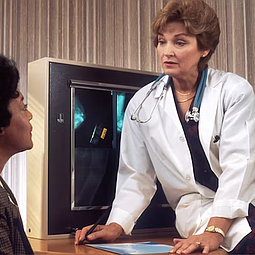Why it's important to choose the right executor or trustee
February 9, 2015 at 12:21 p.m. | Updated February 9, 2015 at 12:21 p.m.
As part of completing your estate planning, a major decision is whom you appoint to carry out your wishes. For estates administering a will, you name a personal representative (also known as an executor) in the document. With a trust, it is the trustee that administers the trust according to its terms. You can name an individual person as an executor or trustee, or name a professional fiduciary, such as a bank trust department or professional service that administers estates and trusts. Whichever type of estate planning you employ, don’t let your estate plan fall apart by naming the wrong executor or trustee, or by not providing the tools to succeed. The person or professional fiduciary that you name to carry out your estate plan can make or break your plan. Choose the right person or professional, and prepare them!
Ensure everything goes “according to plan.”
1. Select common sense: For most estates and trusts, a person who is diligent, organized and has a basic business sense is the best choice for an executor or trustee. You want someone who has good judgment and knows when to ask for professional help and expertise from an accountant, investment advisor or estate attorney. Consider his or her age, physical location and availability, and the complexity of your estate. What are your family dynamics? Your children (or spouse and step-children) may get along now, but when issues of money and control are involved, will that potentially ruin relationships? Due to complexity, family issues or financial/tax issues, should a corporate or professional independent executor/trustee be considered?
2. Four key steps to prepare for your executor or trustee to succeed:
a. Get your legal house in order – Make sure your legal documents are properly prepared, up-to-date, and that they accurately define your intentions.
b. Create a map to follow – prepare a detailed list of your assets and debts, where to locate them, or how to access them, including how to access computer records and online accounts. Insurance policies, bank and brokerage accounts, retirement accounts and pensions, real estate, business interests, mortgages, credit cards, social media accounts, are just a few of the many items that your personal representative will need to manage. Give your executor or trustee the detailed information he or she needs to avoid lengthy and costly delays.
c. Provide for contingencies - A properly prepared estate plan should provide for substitute executors/trustees, and provide for the proper level of authority to manage the estate assets.
d. Choose and consult with trusted legal and financial advisors to guide you and your executor/trustee. Provide your loved ones with the team they need to smoothly and correctly administer your estate.
3. Revisit your plan: Is your ex brother-in-law your trustee? Your perfect pick of executor/trustee may become less than perfect over time. Divorces, disputes, or health issues are just a few of the curves life throws at us. Revisit your plan after major life changes.
These are just a few of the many issues concerning the appointment of an executor or trustee in your estate plan.
[Daniel Findley is an attorney with Mills Meyers Swartling, P.S. in Seattle. Reach him at dfindley@millsmeyers.com or 206.382.1000.]





